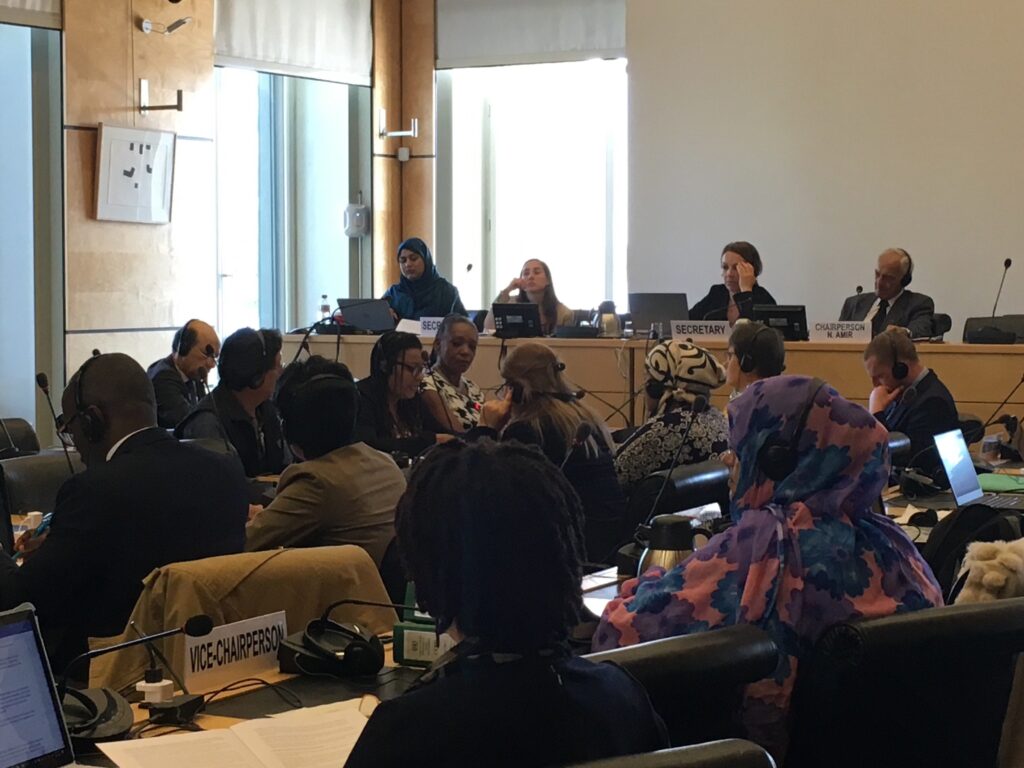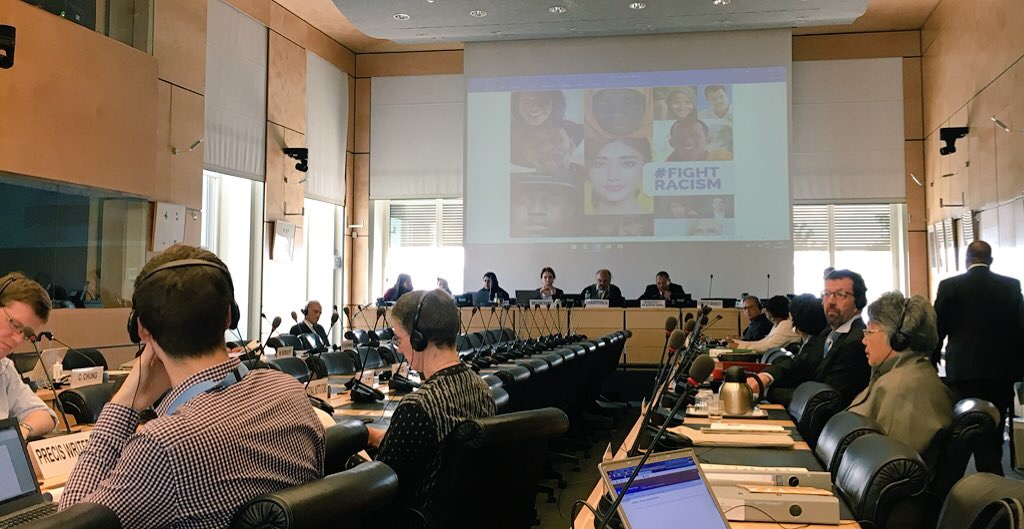International Trans Day of Remembrance: Remembering and reaffirming the struggle for equality and justice
Washington, D.C., November 20th, 2020.- On November 20th, International Day of Trans Remembrance, the International Institute on Race, Equality and Human Rights (Race and Equality) remembers the trans people who have been killed around the world, especially in Latin America and the Caribbean, where the majority of such killings take place according to civil society reports. Race and Equality spoke with six trans activists from across the region who keep the memory of those killed alive and carry on the struggle for equality and justice.
An unimaginable reality
Brandy Carolina was 32 years old when she was stabbed to death by a man in the La Chinita neighborhood of Barranquilla, Colombia. Brandy was known as an extrovert who dreamed of earning enough money to buy a house for her mother, but she was killed for being a trans woman before she could make her dream a reality. Her death and the hateful motives behind it were reported by organizations that defend the rights of Colombians with diverse sexualities and gender identities.
“She never expressed fear beforehand, she was confident in herself, and really, nobody expects to die, it comes suddenly and where you don’t expect it,” said Andra Hernández, a representative of the Boyacá LGBTI Network and a member of Femidiversas. However, Andra pointed out that La Chinita was also the site of two murders in the months before Brandy’s death: the killing of a trans woman on April 16th, and the murder of a lesbian woman on March 26th. “We didn’t expect that someone so close to us would meet the same fate, at the hands of a society that doesn’t respect diversity and difference. You can never be prepared for a death, much less being murdered for being trans,” she said.
Every year, in the lead-up to Trans Day of Remembrance, the international organization TransRespect Against Transphobia publishes a detailed report on the killing of trans and gender-diverse people around the world. This year’s report reveals that between October 1st, 2019 and September 30, 2020, there were 350 such murders. 82% occurred in Latin America, with Brazil (152 murders),[1] Mexico (45), and Colombia (16)[2] atop the list of countries with the most killings.
Dying two times
Santiago Balvin, a non-binary trans-masculine activist from Peru, affirmed the importance of commemorating trans people who have been killed. According to Santiago, these victims continue to suffer discrimination and erasure after their deaths: “There is a feeling of frustration because you can’t do anything – their families don’t recognize their names, the media does not report about their identity correctly, it’s very painful when your sister’s death is treated this way and it keeps happening with impunity.”
Santiago also emphasized the importance to Peru’s LGBTI community of marking the Tarapoto Massacre, also known as the Night of the Gardenias, a targeted killing of transgender people on May 31st, 1989 that is recognized as the worst hate crime against transgender people in Peru’s history. According to Santiago, Peruvian civil society organizations have recorded five murders of transgender people in 2020.
Victoria Obando, a Nicaraguan human rights activist and former political prisoner, told Race and Equality that for her, Trans Day of Remembrance is a day to honor the struggle for trans rights, a struggle in which most of those killed had participated during their lives. “We live in a society that does not recognize us as part of society. It’s a tragedy what the trans population has to go through, especially trans women. They don’t recognize that we are also human beings,” she said.
Nicaragua does not have reliable data about violence against trans people, a failure which Victoria links to the broader socio-political crisis affecting the country. She also denounced the tendency to sideline trans activists in discussions about how to return democracy to the country. “Some people think in terms of categories like ‘special topics’ and see trans rights as something secondary to be kept in a box. As an activist, I have had to fight for acceptance; some people underestimate my abilities because of my identity,” she said.
Exclusion and impunity
Athiany Larios Fonseca, a Nicaraguan trans woman living in exile in Costa Rica, recalls one of the first times she encountered anti-trans discrimination. “My friend and her partner were attacked with stones outside her house; she later asked me why people treat us so badly, and I started to cry. People attack us and even kill us because of this hate, because we are not a woman or a man according to their biological rules,” she told Race and Equality.
Christian King, an activist with TRANSSA in the Dominican Republic, explained that Trans Day of Remembrance “is about recognition and reaffirming our trans companions who have lost their lives to discrimination, transphobia, and prejudices that come from a lack of political will or public policies that protect trans rights and penalize discrimination.”
In the Dominican Republic, the Observatory on the Human Rights of Trans People has registered 49 hate crimes against trans women, of which only 5 have been tried and led to sentences against the perpetrators. Along with TRANSSA, the Observatory advocates for a national Law on Equality and Non-Discrimination, a Law on Gender Identity, and the full implementation of the National Human Rights Plan.
The state’s responsibility
Bruna Benevides, a leader of the National Association of Travestis and Transsexual People (ANTRA)[3] in Brazil, stated that violence against trans people stems from a long historical process by which trans people are rendered invisible, denying them their most basic rights. Bruna placed the blame squarely at the foot of the state, which has failed to respond to trans people’s needs. “We see a growing neoliberal trend around the world, leading to fascism. The specter of “gender ideology” and the belief that trans people, women, and Black people must continue to be subordinated are central to this trend,” she added.
Bruna also emphasized the ways in which COVID-19 has exacerbated violence against trans people, with inequality, unemployment, hunger, and social exclusion all worsening during the pandemic. As TransRespect’s report makes clear, the pandemic has had a disproportionate effect on trans people, particularly trans people who are also excluded from society because they are women, Black or another racial minority, sex workers, migrants, young people, or poor.
Bruna went on: “Sadly, the lack of action and the lack of attention to trans people, the way that we are treated as invisible, leaves us without any state assistance. As a result, we are more vulnerable to violence. This is part of a broader logic that decides who can be killed, who can be discarded, who is not part of the hegemonic structure and can be exterminated easily. We are the country with the most killings of trans people in the world, and this year we are at the top of the ranking once again.”
On International Trans Day of Remembrance, Race and Equality calls on all states to remember their obligation to protect and promote the rights of all people without discrimination. Faced with a worldwide crisis of violence and murders against trans people, we offer the following recommendations:
- States should adopt the necessary laws and policies to guarantee recognition, respect, and inclusion for people with diverse sexualities and gender identities
- States should establish special mechanisms to respond to acts of violence against LGBT people, leading to full investigations, sanctions for those responsible, and guarantees of non-repetition
- States should utilize official channels and resources to educate the population about sexual diversity and gender identity in order to promote societal recognition and respect for LGBTI people and their rights
[1] Data recorded by ANTRA, a Brazilian LGBTI advocacy organization
[2] Civil society organizations based in Colombia reported an additional 14 cases, for a total of 30
[3] Travesti is a Portuguese term for a person who was assigned male at birth, but who identifies and self-expresses as female, with or without any related medical interventions.




